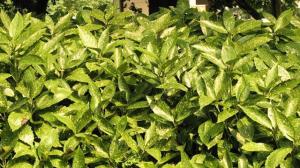Introduction
Plants require water to survive and thrive. Water is used for various essential processes such as photosynthesis, nutrient transport, and cell growth. It is a well-known fact that plants absorb water through their roots during the day. However, there is a widely debated question - do plants absorb water at night? In this article, we will explore this query in detail.
Water Absorption in Plants
The process of water absorption in plants involves the movement of water from the soil into the roots through a process called osmosis. The water moves from an area of high water concentration (soil) to an area of low water concentration (roots). Once the water is absorbed into the roots, it moves up through the stem into the leaves, where it is used for various functions. During the day, plants absorb a considerable amount of water to facilitate photosynthesis and the maintenance of turgor pressure. Turgor pressure is important as it helps the plant to maintain rigidity.
Factors Affecting Water Absorption in Plants
Several factors can affect water absorption in plants such as temperature, humidity, soil moisture, and light intensity. Low temperatures can reduce water uptake as they decrease metabolic processes required for water absorption. High humidity can also decrease water absorption as it reduces the moisture gradient between the soil and roots. Soil moisture is a significant factor affecting water uptake. If the soil is too dry, roots cannot absorb water efficiently. Finally, light intensity can impact water absorption in plants as it affects transpiration, which is the process of water loss through the leaves.
Do Plants Absorb Water at Night?
The answer to this question is YES. Plants do absorb water at night. In fact, some plants absorb more water at night than during the day. This is because water uptake is not limited by light intensity during the night. However, the rate of water absorption is generally slower at night compared to the daytime. This is because factors such as temperature, humidity, and soil moisture levels are not optimal during the night.
Why Do Plants Absorb Water at Night?
Plants absorb water at night to replenish the moisture lost during the day. Water loss during the day occurs mainly through transpiration. Transpiration is essential for plants as it helps them to cool down and transport nutrients throughout the plant. However, if the absorbed water is not replaced, the plant can experience water stress, which can lead to wilted leaves, stunted growth, and even death in severe cases.
Conclusion
In summary, plants absorb water at night to replenish the water lost during the day. While water absorption is generally slower at night compared to the day, some plants can absorb more water at night than during the day. Understanding the factors that affect water absorption in plants can help in maintaining healthy plants. It is essential to provide adequate water, light, and soil conditions to ensure optimal water absorption in plants.

 how many times do yo...
how many times do yo... how many planted tre...
how many planted tre... how many pine trees ...
how many pine trees ... how many pecan trees...
how many pecan trees... how many plants comp...
how many plants comp... how many plants can ...
how many plants can ... how many plants and ...
how many plants and ... how many pepper plan...
how many pepper plan...































